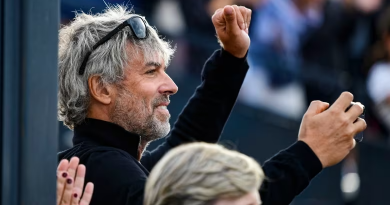Canada’s opposition leader lays out foreign policy priorities
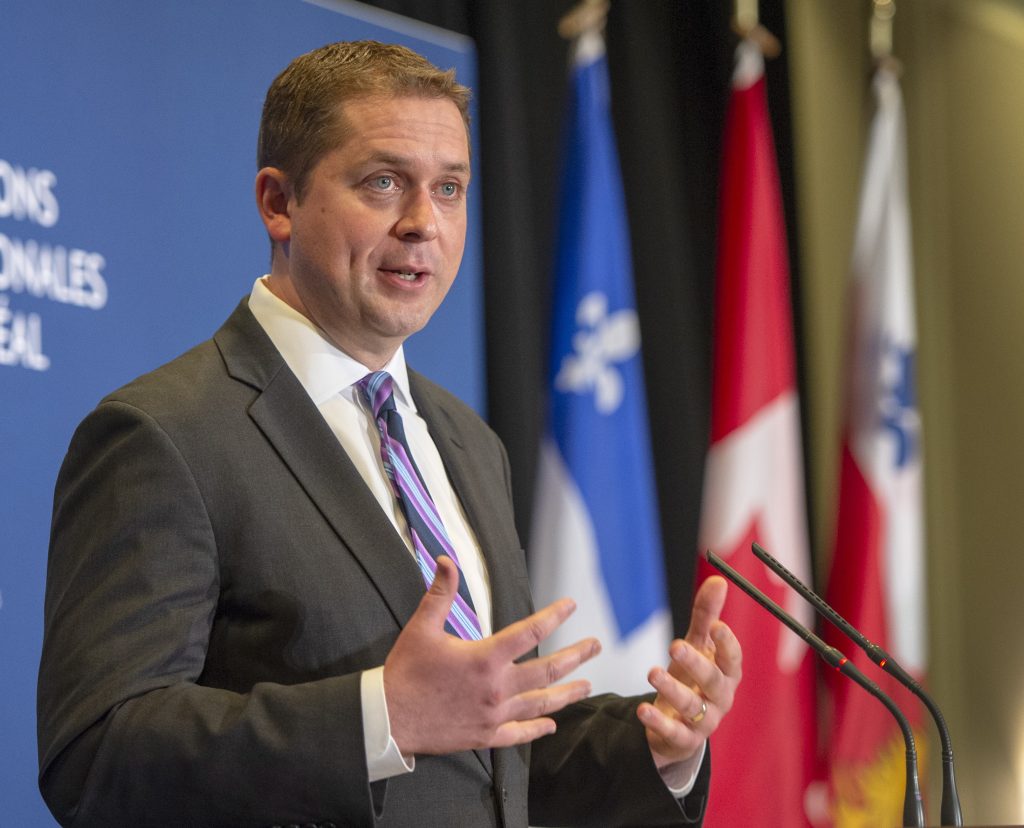
The rise of China, the re-emergence of Russia’s Cold War mentality and states that export terrorism and extremism are some of the top foreign threats to Canada’s security and prosperity in the 21st century, says Opposition Leader Andrew Scheer.
And if following the upcoming federal elections this fall the Conservative Party forms the next government, he would work to strengthen Ottawa’s relations with key partners, particularly, the United States, reinvest in the Canadian military and assert Canada’s sovereignty in the Arctic, Scheer said Tuesday during a luncheon address to the Montreal Council on Foreign Relations.
The speech repeated many of the attack lines the Conservative Party has directed against the Liberal government of Prime Minister Justin Trudeau and laid out in large brushstrokes Scheer’s foreign policy priorities without going into specifics.
Scheer said that since famously declaring that “Canada is back” on the international scene, Trudeau has demonstrated “a fundamental unseriousness and misunderstanding” of foreign policy challenges facing the country.
Foreign Affairs Minister Chrystia Freeland said that as former international trade minister and now Canada’s top diplomat she has personally experienced “the power, the value and the effectiveness of the prime minister’s work on the international arena.”
Far from being a diplomatic lightweight, Trudeau “is a very influential leader in the world,” who uses his influence in support of Canada and to promote Canada’s national interests, Freeland told reporters during a conference call from the Riga airport, after concluding an Arctic Council Ministerial meeting in Finland.
Confronting rising China
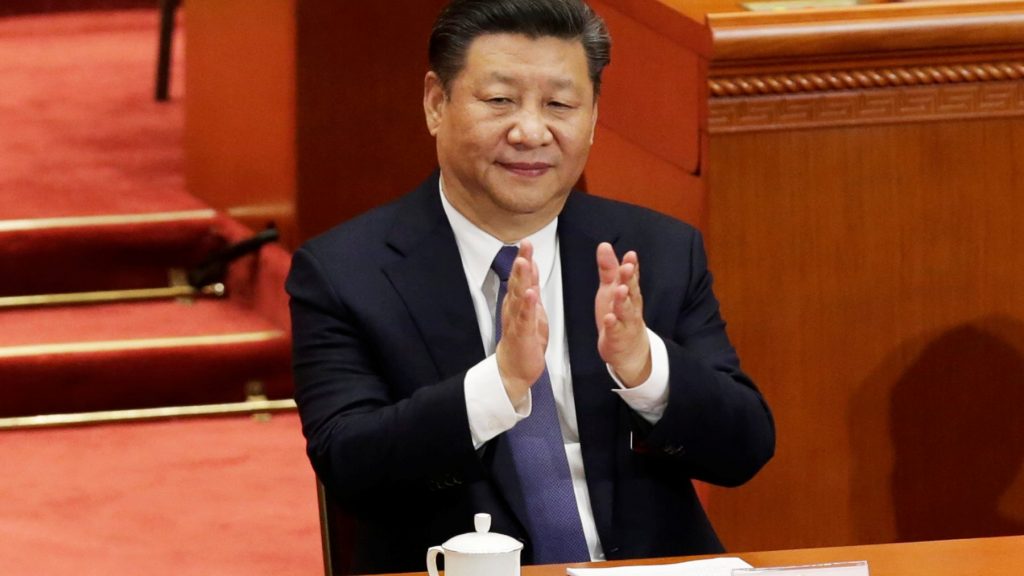
A Conservative government will get tougher with China, recognizing that “it does not represent its people,” Scheer said.
“Canada should engage with the Chinese government but engage in a way that seeks to advance our values and our interests,” Scheer said, without specifying how his policy would be different from that of the current Liberal government.
Canada’s relationship with China needs a “total reset,” he added.
“I will deal with China with eyes wide open,” Scheer said. “I will look for ways to strengthen our relationship and open new markets, but with the understanding that at this critical juncture we need to show strength and resolve above all else.”
Scheer said Canadians cannot ignore “China’s adversarial approach to Canada and the Western democratic world” and its treatment of Canada following the arrest of Meng Wanzhou, the chief financial officer of Chinese telecom giant Huawei.
Following Meng’s arrest in Vancouver in December 2018 upon U.S. request, Chinese authorities have arbitrarily detained two Canadians – former diplomat Michael Kovrig and entrepreneur Michael Spavor – and have put up administrative barriers for imports of Canadian canola and other agricultural products.
“So long as China is willing to hold our exports hostage, all while committing human rights violations, we have no choice as Canadians but to consider other trading partners,” Scheer said.
Canada should work on expanding its trade with likeminded democracies in the Indo-Pacific region, he added.
“A community of free democracies all over the world – in Europe, in the Indo-Pacific and everywhere in between – united to resist the forces of authoritarianism, built through Canadian leadership that should be our goal, that will have a deeply consequential impact on global history,” Scheer said.
Standing up to resurgent Russia
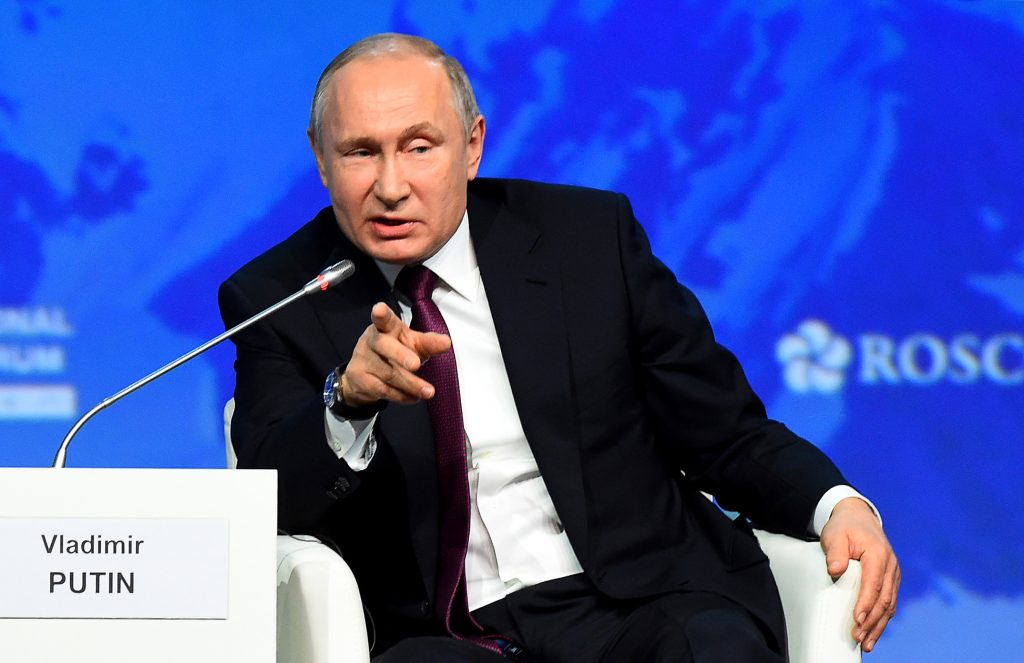
Russia also remains a serious threat to Canada, Scheer said.
“Vladimir Putin cannot be allowed to act with impunity when it comes to his military adventurism,” Scheer said. “While today he’s occupying Ukraine, tomorrow it could be Canada’s Arctic waters.”
The Conservative leader did not explain why Moscow, which unlike Canada’s closest ally, Washington, does not question Ottawa’s sovereignty over the Northwest Passage or dispute the maritime boundary between Canada and U.S. in the Beaufort Sea, would want to occupy Canada’s Arctic waters.
“But it isn’t just in Ukraine where Vladimir Putin has reasserted Russia’s Cold War posture,” Scheer said. “Russia has supported Iran and together they have been the main sources of disruption and despair in the Middle East.”
Unwavering support for Israel
Canada should also renew its support for Israel and “its inherent right to defend itself,” Scheer said.
“Terrorist groups like Hamas and Hezbollah have absolutely no interest in peace,” Scheer said.
“I want to be very clear as well that under my leadership extending a hand of friendship to the Palestinian people would be a priority,” Scheer added, at the same time promising to move Canada’s embassy in Israel to Jerusalem, which Palestinians want for their future capital.
Restoring ties with the United States
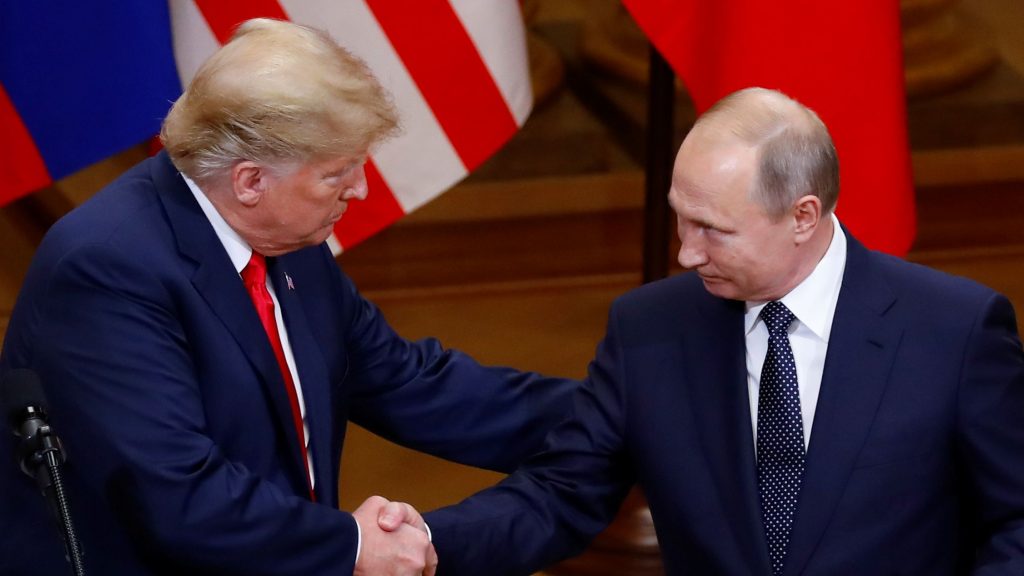
To achieve its foreign policy, security and economic goals Canada needs to restore its relations with the United States, Scheer said.
“There is no doubt that relations with the current administration are difficult for all global leaders,” he said. “The current president is reversing decades of U.S. foreign policy, particularly when it comes to alliances.”
Nevertheless, relations between Canada and U.S. will endure, he said.
“We cannot let personality to trump links between our two countries,” Scheer said in French.
Building up Canada’s military might
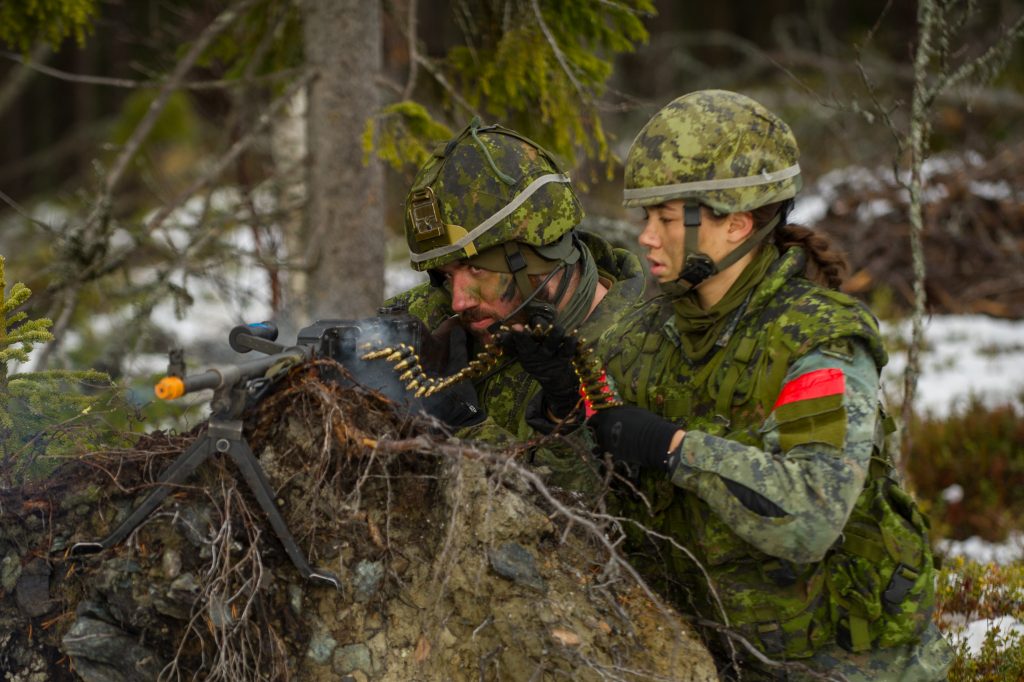
Having a strong and principled foreign policy is meaningless unless Canada has an agile and strong defence policy to back it up, Scheer said.
Under Tory leadership, Canada would join the U.S.-led ballistic missile defence program, Scheer said.
To address threats to Canada’s sovereignty in the Arctic by Russia, China and others, a Conservative government would reinforce the country’s standing as a maritime nation, Scheer said.
A Conservative government would fix Canada’s broken military procurement system, launch a tender for the new fighter jet program, invest in modern submarines and icebreakers, he said.
“Above all, we must establish, without a doubt, everywhere in the world, that our sovereignty over the North is non-negotiable,” Scheer said. “The Arctic does not only belong to us, it is us.”
Canada also needs to beef up its cyber war capacity, he added.
Reinvigorating old alliances and seeking new ones
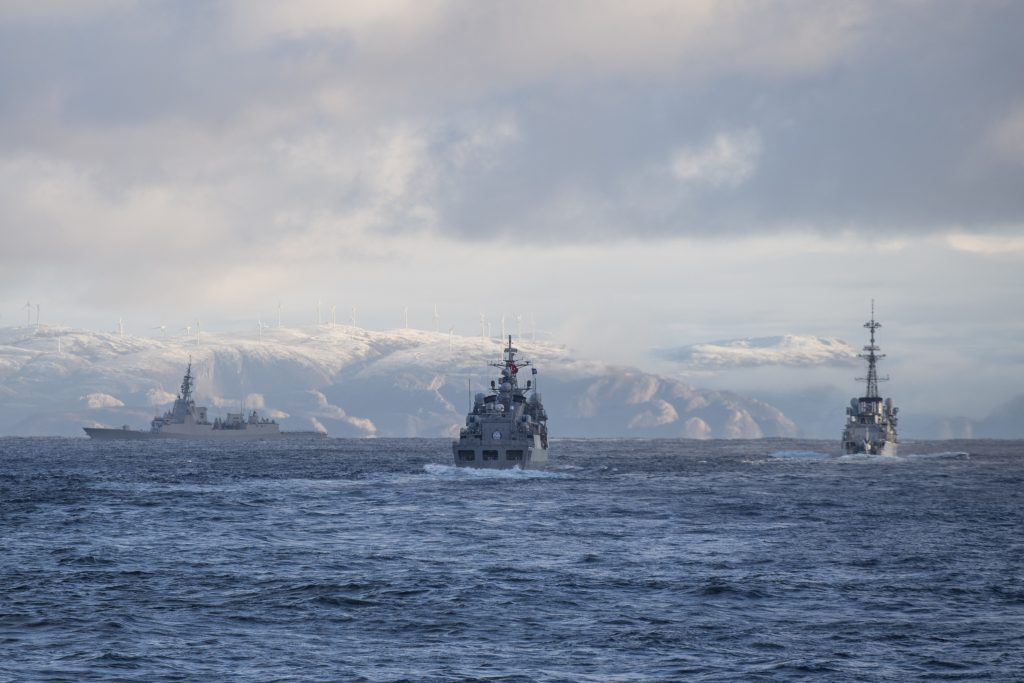
As prime minister he would reinvigorate Canada’s alliances with NORAD, NATO, the Commonwealth, the Francophonie and the Five Eyes, but will also include greater overtures to India and Japan, Scheer said.
“If the values of pluralism, democracy, and human rights and rule of law are to prevail, it’s time once again for the free-speaking and democratic peoples of the world to reinvigorate old alliances and build new ones,” Scheer said.
“Canada can and we will find common cause and ensure that freedom prevails in this century just as it did in the past.”
‘Complete absence of humility’
Stephen Saidemen, a professor of international relations at Carleton University, said Scheer’s criticism of the Liberal foreign policy related mostly to style rather than substance.
“He wants Canada to be the quarterback in the international relations,” Saidemen said in a Skype interview from Germany. “But the reality is that Canada can’t be the quarterback in international relations. It just doesn’t have the power, it doesn’t have the ability to do that.”
Scheer’s speech shows a “complete absence of humility,” he added.
“It’s not just we’re the ‘quarterback’ but we’re also going to confront China, we’re going to smash them in the mouth and that will help us reset our relations,” Saideman said.
“If there is anything that we have learned in the past year, that when authoritarian countries punch us in the face, there is really not a whole a lot we can do about it because we don’t have the ability to smash them really hard.”
China has shown that it’s willing to go toe to toe with the most powerful country in the world in its trade war with Washington, Saideman said.
Related stories from around the North:
Canada: Premier in Arctic Canada to push Ottawa for more military and icebreakers in the North, CBC News
China: Russia, China step up talks over Arctic shipping, The Independent Barents Observer
Finland: Authorities in Arctic Finland plan zones for controversial rail line, Yle News
Norway: Norway rearming in Arctic to face new security landscape, The Independent Barents Observer
Russia: Russia, China step up talks over Arctic shipping, The Independent Barents Observer
United States: U.S. Navy plans to be more active in the Arctic, Alaska Public Media

